n-heptanoic acid
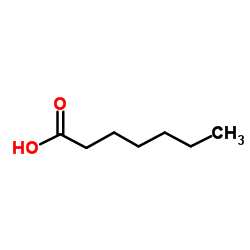
n-heptanoic acid structure
|
Common Name | n-heptanoic acid | ||
|---|---|---|---|---|
| CAS Number | 111-14-8 | Molecular Weight | 130.185 | |
| Density | 0.9±0.1 g/cm3 | Boiling Point | 222.6±3.0 °C at 760 mmHg | |
| Molecular Formula | C7H14O2 | Melting Point | -10.5 °C | |
| MSDS | Chinese USA | Flash Point | 99.2±11.9 °C | |
| Symbol |


GHS05, GHS07 |
Signal Word | Danger | |
| Name | heptanoic acid |
|---|---|
| Synonym | More Synonyms |
| Density | 0.9±0.1 g/cm3 |
|---|---|
| Boiling Point | 222.6±3.0 °C at 760 mmHg |
| Melting Point | -10.5 °C |
| Molecular Formula | C7H14O2 |
| Molecular Weight | 130.185 |
| Flash Point | 99.2±11.9 °C |
| Exact Mass | 130.099380 |
| PSA | 37.30000 |
| LogP | 2.37 |
| Vapour density | 4.5 (vs air) |
| Vapour Pressure | 0.1±0.5 mmHg at 25°C |
| Index of Refraction | 1.433 |
| Stability | Stable. Incompatible with strong oxidizing agents, bases, reducing agents. Combustible. Protect from light. |
| Water Solubility | 0.24 g/100 mL (15 ºC) |
CHEMICAL IDENTIFICATION
HEALTH HAZARD DATAACUTE TOXICITY DATA
|
| Symbol |


GHS05, GHS07 |
|---|---|
| Signal Word | Danger |
| Hazard Statements | H314-H332-H335 |
| Precautionary Statements | P260-P280-P303 + P361 + P353-P304 + P340 + P310-P305 + P351 + P338 + P310 |
| Personal Protective Equipment | Faceshields;full-face respirator (US);Gloves;Goggles;multi-purpose combination respirator cartridge (US);type ABEK (EN14387) respirator filter |
| Hazard Codes | C:Corrosive |
| Risk Phrases | R34 |
| Safety Phrases | S26-S28-S36/37/39-S45-S28A |
| RIDADR | UN 3265 8/PG 3 |
| WGK Germany | 1 |
| RTECS | MJ1575000 |
| Packaging Group | III |
| Hazard Class | 8 |
| HS Code | 2915900090 |
| Precursor 10 | |
|---|---|
| DownStream 9 | |
| HS Code | 2915900090 |
|---|---|
| Summary | 2915900090 other saturated acyclic monocarboxylic acids and their anhydrides, halides, peroxides and peroxyacids; their halogenated, sulphonated, nitrated or nitrosated derivatives VAT:17.0% Tax rebate rate:9.0% Supervision conditions:AB(certificate of inspection for goods inward,certificate of inspection for goods outward) MFN tariff:5.5% General tariff:30.0% |
|
Structural variation governs substrate specificity for organic anion transporter (OAT) homologs. Potential remote sensing by OAT family members.
J. Biol. Chem. 282 , 23841-53, (2007) Organic anion transporters (OATs, SLC22) interact with a remarkably diverse array of endogenous and exogenous organic anions. However, little is known about the structural features that determine thei... |
|
|
Protic ionic liquids (PILs) nanostructure and physicochemical properties: development of high-throughput methodology for PIL creation and property screens.
Phys. Chem. Chem. Phys. 17(4) , 2357-65, (2014) A high-throughput approach was developed in order to prepare and dry a series of protic ionic liquids (PILs) from 48 Brønsted acid-base combinations. Many combinations comprised an alkyl carboxylic ac... |
|
|
Mosquito odorant receptor for DEET and methyl jasmonate.
Proc. Natl. Acad. Sci. U. S. A. 111(46) , 16592-7, (2014) Insect repellents are important prophylactic tools for travelers and populations living in endemic areas of malaria, dengue, encephalitis, and other vector-borne diseases. DEET (N,N-diethyl-3-methylbe... |
| hexane-6-carboxyamide |
| Enanthylic acid |
| Heptylic acid |
| Enanthyl alcohol |
| n-Heptoic acid |
| 1-heptanoic acid |
| Heptoic acid |
| enanthic acid |
| Oenanthic acid |
| hexa carboxylic acid |
| Enanthic acid,Oenanthic acid |
| hexane carboxylic acid |
| MFCD00004426 |
| enanthoic acid |
| EINECS 203-838-7 |
| Heptanoic acid |
| n-Heptylic acid |
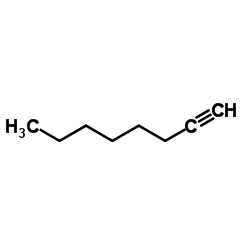 CAS#:629-05-0
CAS#:629-05-0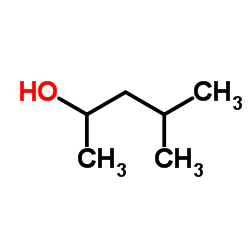 CAS#:108-11-2
CAS#:108-11-2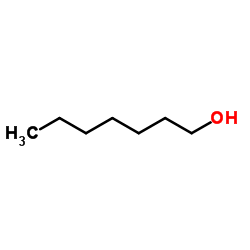 CAS#:111-70-6
CAS#:111-70-6 CAS#:6434-78-2
CAS#:6434-78-2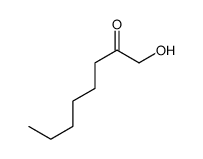 CAS#:7019-19-4
CAS#:7019-19-4 CAS#:111-71-7
CAS#:111-71-7 CAS#:111-66-0
CAS#:111-66-0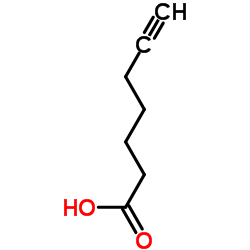 CAS#:30964-00-2
CAS#:30964-00-2 CAS#:1117-86-8
CAS#:1117-86-8 CAS#:10374-74-0
CAS#:10374-74-0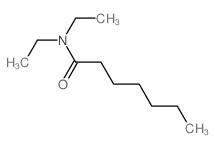 CAS#:10385-08-7
CAS#:10385-08-7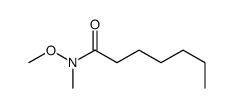 CAS#:104863-66-3
CAS#:104863-66-3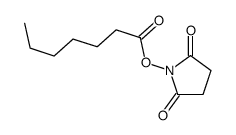 CAS#:104943-22-8
CAS#:104943-22-8 CAS#:1119-06-8
CAS#:1119-06-8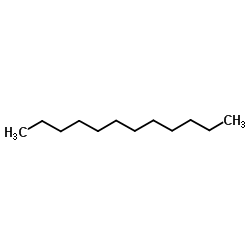 CAS#:112-40-3
CAS#:112-40-3 CAS#:40386-05-8
CAS#:40386-05-8 CAS#:33083-83-9
CAS#:33083-83-9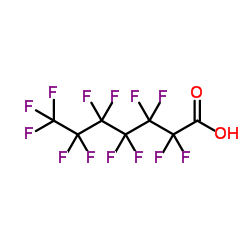 CAS#:375-85-9
CAS#:375-85-9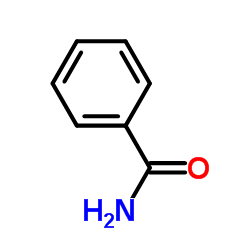 CAS#:55-21-0
CAS#:55-21-0
